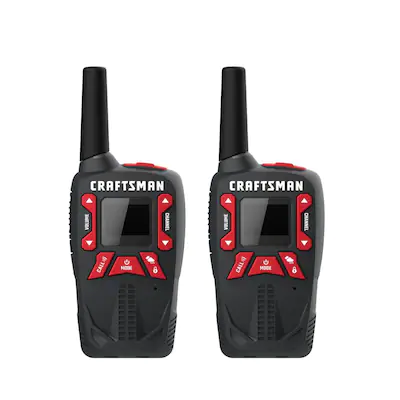The Three Most Common Questions We’re Asked

At General Communications, we are proud to not only be a leader in providing custom communication solutions, but also to be a leader in providing excellent customer service. If your organization is due for a refresh on radios and you’re unsure if General Communications is the right supplier for you, we can at least help be your guide in the process.
Here are the three most common questions we get asked from new customers and prospects:
- Can’t I just buy two-way radios at a big-box store?
While you may see two-way radios at your local big-box store, they are not designed or built with the power, durability, security, and features needed in hospitals, schools, restaurants, hotels, factories and warehouses. Big-box store radios will always fall short of your expectations in the workplace. These radios use shared frequencies, allowing others in the same area to listen to and broadcast over your radios. This can cause significant security and safety issues. Commercial grade radios use frequencies assigned to you, so there will be no interference from the outside. While big-box store radios are good for personal use (reaching your kids in the backyard or your hunting partner in their tree stand), commercial grade radios have far greater range and user-friendly features – making them a preferred choice for any organization. Don’t believe us? Contact one of our communication consultants to learn more and we’ll even provide a demonstration.
- Why do I need an FCC license?
It is illegal to operate most radios without a Federal Communications Commission (FCC) license. The FCC assigns frequencies based on the location of the radio to guarantee there will be no interference from other radios in your area. While there is some cost for the license application, the license is valid for 10 years. This also provides the comfort of knowing others will not interfere with your radios and your radios won’t interfere with others.
- Why do we need two-way radios when everyone has a cell phone?
In nearly half of the United States, it is illegal for your employees to be using a cell phone while operating a vehicle. However, it is legal to use two-way radios during vehicle operation. Two-way radios offer increased safety and security as well as the convenience of being able to just push one button to transmit to a group of coworkers. During emergencies, an entire group can immediately hear a user’s message for help, whereas a cellphone user would need to answer the phone call in time. Depending on the location of the nearest cell tower, cellphones may not even have a strong enough signal in a building for effective communication during an emergency.
Imagine an employee in a crisis or trapped by a piece of equipment, trying to dial a coworker or supervisor for help and hoping someone answers. It just doesn’t work as well compared to the trapped employee pushing the large button on the side of his or her two-way radio and a group of teammates being able to immediately hear that transmission. There are also several emergency features built into most commercial-grade two way radios for added safety.
We know that there isn’t a one-size-fits-all approach to every solution. That’s why our team of dedicated experts are here to help your organization’s communication needs. Contact us to learn more about how we can help you improve your safety today.
